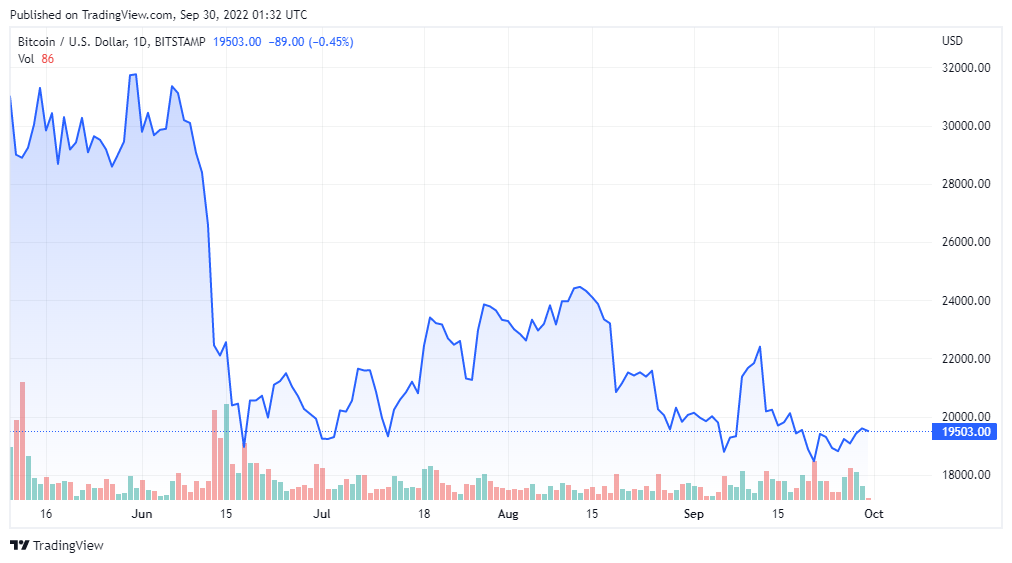The Bitcoin Policy Institute’s report on CBDCs makes a strong case for why the US should reject a centrally issued version of the dollar. Bitcoinist covered that already. This time, we’ll focus on the reasons why The Bitcoin Policy Institute thinks CBDCs don’t make sense and are not practical for capitalist societies. The main argument is that a CBDC would obsolete banks. And banks won’t allow that. So, the question is, how influential are banks in state policy?
Mind you, this time The Bitcoin Policy Institute’s case is even stronger. And we won’t mention China even once.
The Delicate Relationship Between CBDCs And Banks
To set up the scene, The Bitcoin Policy Institute’s report goes to why central banks are against bitcoin:
- “For evident reasons, central banks have been ambivalent–at best–about Bitcoin. They sense in some of its functions a potential existential threat: Bitcoin has automated the issuance and transaction of hard money, calling into question the role of central banks in economic life.”

BTC price chart for 09/29/2022 on Bitstamp | Source: BTC/USD on TradingView.com
Under a bitcoin standard, central banks are obsoleted. On the other hand, if the US creates a CBDC they would be kings of the castle. The center of the whole system. Which sounds good to them, until you include the private banks’ factor.
- “CBDCs are digital cash–digital versions of paper banknotes. Because cash is issued by central banks, CBDCs enable consumers to have direct relationships with central banks rather than relying on commercial banks to serve as intermediaries between the two.”
The first question is, will private banks go out without a fight? The second one is, would a CBDC standard also wipe out the whole financial system? What happens to lending and borrowing, for example? Are central banks equipped to absorb every service that commercial banks offer? The whole situation brings to mind that classic Mr. Robot scene that has been making the rounds on Twitter lately:
Exclusive footage of what is going on inside every central bank right now pic.twitter.com/ttaNRVP4g8
— Interstellar (@InterstellarBit) September 29, 2022
Does The End Of Cash Mean The End Of Privacy?
- “With both the imposition of CBDCs and the elimination of physical cash, the ability to anonymously transact will also be eliminated. This destruction of the last remnants of financial privacy is touted by governments as necessary to prevent financial crimes.”
Putting aside how ineffective KYC and AML procedures are in actually preventing crimes, there’s the fact that privacy is a human right. And, as The Bitcoin Policy Institute puts it, “those calling for the rollout of a CBDC are naïve to believe that this can be done without establishing a centralized surveillance system for all financial transacting.” The function is so trivial to add that it would be an element of CBDCs whether we want it or not.
- “Central bank digital currencies (CBDCs) represent an extension of this state control over economic life. CBDCs provide governments with direct access to every transaction in that currency conducted by any individual anywhere in the world.”
Government people tout this as some kind of victory and play it like it will help them prevent crime. The fact of the matter is, they don’t want that kind of power. They think they do, but they don’t. Privacy is absolutely necessary for freedom to exist. And there’s already a lack of financial privacy as it is. Not only that, “as governments worldwide routinely share data with one another, individual transaction data will quickly become known to any government in a data sharing arrangement.”
The Technological Element To CDBCs
Slightly switching topics, The Bitcoin Policy Institute presents another obstacle to CBDCs. This one would be hard to admit for governments everywhere, but It does make all the sense in the world.
- “A CBDC requires a robust, highly secure, extremely reliable, and regularly-updated technical infrastructure to implement and maintain. To date, governments–even in the software-forward countries of the United States and the United Kingdom–have demonstrated that the design, delivery, and maintenance of software is not their strength.”
Are governments going to become technology providers all of a sudden? While at the same time absorbing all of the commercial banks’ functions? That just doesn’t seem feasible. And the affected institutions won’t take it sitting down. Are CBDCs a pipe dream then? Maybe they are.
Featured Image by Brock Wegner on Unsplash | Charts by TradingView
 bitcoinist.com
bitcoinist.com